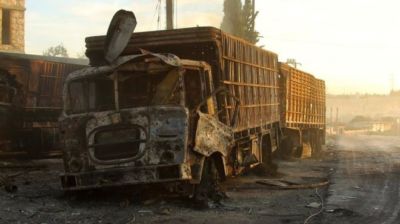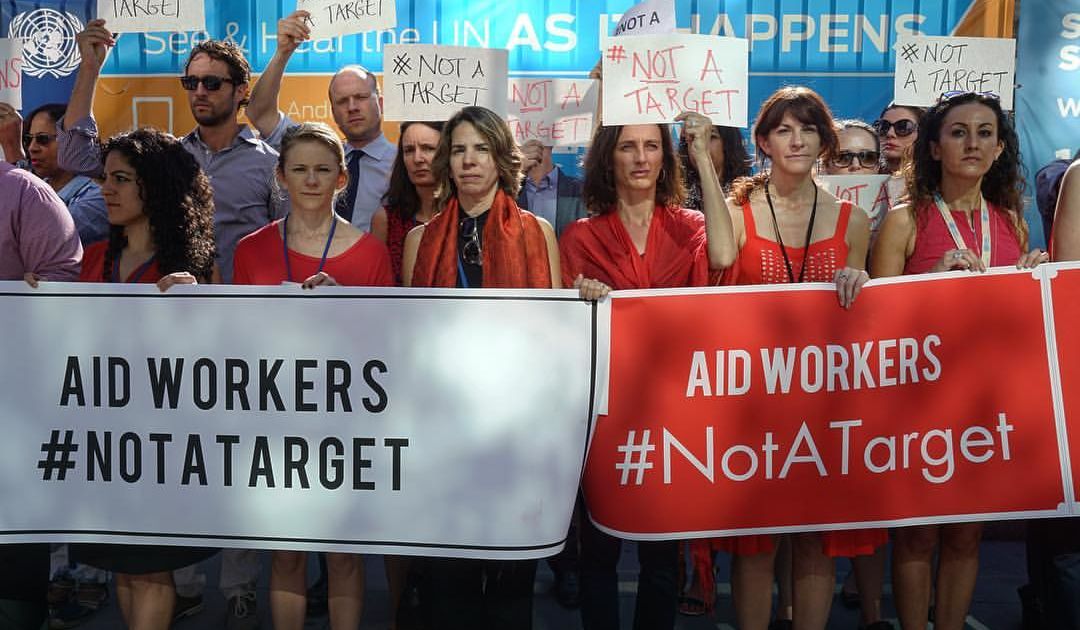CBR Project Expanding Operations to Assist with Syria Crisis
By Emmett FitzgeraldWe at the CBR Project condemn the brutal and deadly attack on the UN humanitarian aid convoy last week in Syria. Both aid workers and civilians were killed and aid supplies meant for thousands in the besieged city of Aleppo were destroyed. This is a documented pattern in the Syria crisis where the humanitarian space has been repeatedly violated.
This incident serves as a stark reminder of just some of the reasons that aid workers suffer with such elevated levels of stress, depression and PTSD. The protracted nature of the Syria conflict makes it arguably the most complex and challenging operating environment in the world for delivering humanitarian aid. And this is why the CBR Project will be expanding operations into the Middle East and focusing our efforts for the rest of 2016 and into 2017 on supporting those working on the Syria crisis. You can support those efforts by donating here.
In the middle of a complex political crisis and a shaky-at-best cease-fire, there is little certainty going to work as a humanitarian aid worker but the reported deliberate targeting of this convoy show as, as Ban Ki Moon stated at the UN General Assembly this week, “Just when we think it cannot get any worse, the power of depravity sinks lower.” These are the perils of the job at its worst. Still, today back at work, these men and women climb into delivery vans, dig through rubble, provide urgent medical care, manage shelters, order supplies, and deal with tragedy after tragedy in order to assist those most in need. And they do it not wanting commemoration or applause.

Aid convoy and personnel attacked in Syria. Photo courtesy of REUTERS.
Friday, UN-affiliated humanitarians gathered outside the General Assembly to protest the targeting of aid workers and to call for better protection and more support from world leaders. What started out as a few protestors holding signs reading #NotATarget, turned into a gathering of over a hundred attended in solidarity by senior figures including the United Nations Deputy Secretary General, Assistant Secretary General for OCHA, the former High Commissioner for Refugees and UN Secretary-General, former High Commissioner for Human Rights, and Ministers from France, Kenya, Germany, Sweden, South Korea, and UK.
We stand with the humanitarian sector’s call to action: justice for violations of international humanitarian law, policy changes that better protect aid workers in crisis, and organizational mandates that ensure equal support for national and international staff. We also say that aid workers who go into these volatile and stressful situations daily, who watch colleagues die, who battle protracted crises, deserve to do their work to the best of their abilities while feeling healthy, cared for, and supported.
In December we are holding a CBR Training in Jordan for humanitarians working on the Syria crisis. The training will provide psychosocial education, practical tools, and peer support to aid workers in the region. Please consider donating here. We have a waiting list of Syrian, Jordanian and international aid workers from a variety of respected aid agencies who cannot currently afford to pay their own attendance fees. Your help will make it possible for more of these aid worker to attend the CBR training, to learn tools to build their resilience and to therefore continue passionately doing their incredibly difficult work.
Political solutions in Syria seem a long way off, but what is possible here and now is to give meaningful support to individuals dedicating themselves to the dangerous work of improving life at the grass roots level in refugee camps and in the daily horror of Syria itself.
Top photo: Courtesy of Giles Clark
